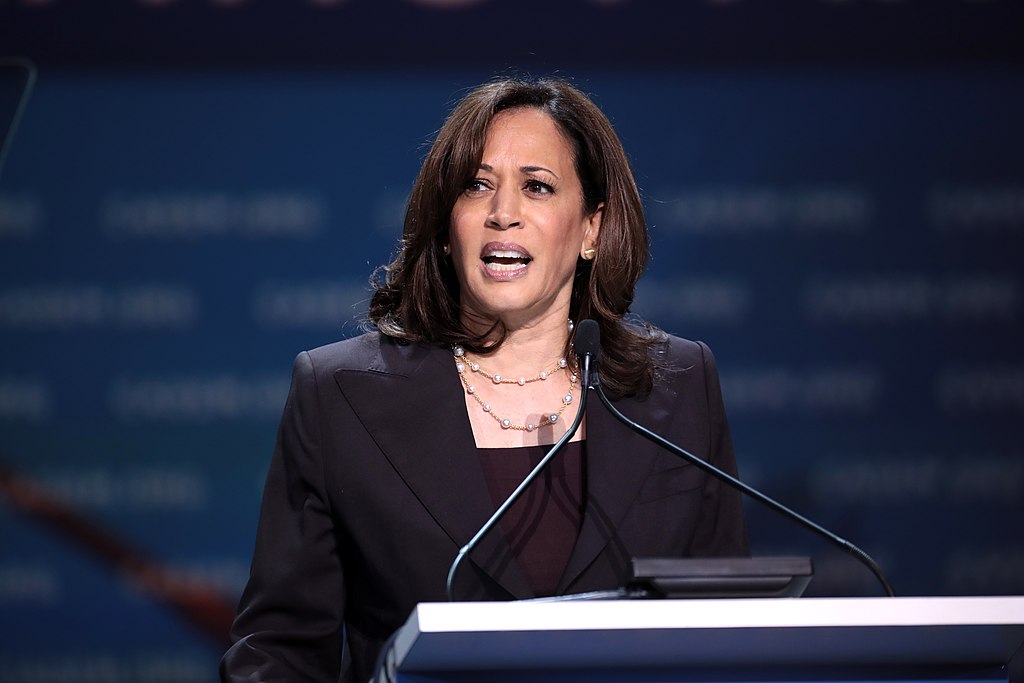Kamala Harris is at the center of a new controversy. Accusations have emerged that her presidential campaign has been paying social media influencers to create posts and videos in her support. The scandal has raised questions about the authenticity of her online backing and the ethics of her campaign tactics.
The allegations suggest that Harris's campaign has engaged a company named Launch Viral to orchestrate a paid social media campaign. Advertisements purportedly run by this company have been circulating, offering influencers $150 plus additional incentives per post to generate supportive content for Harris on platforms like TikTok and Instagram.
These advertisements reportedly outline a specific set of instructions for influencers. They are encouraged to post memes using pre-approved assets, mention Kamala Harris in their posts, and use designated hashtags such as #kamalaharris and #harris2024. According to these ads, the aim is to create the illusion of organic support among Gen Z users, a demographic crucial for any modern political campaign.
This revelation has sparked a wave of criticism, with detractors arguing that such tactics undermine the integrity of political discourse and deceive the public about the level of genuine support for Harris. Critics contend that paying for social media endorsements represents a form of astroturfing, a practice where the appearance of grassroots support is artificially generated.
The accusations come at a critical time for Harris, the presumptive Democratic nominee, following President Joe Biden's withdrawal from the race. Her campaign has been striving to galvanize young voters, who are pivotal in shaping the narrative on social media platforms.
The controversy has not gone unnoticed by political opponents and commentators. Many have taken to social media to express their disdain, accusing Harris of being unlikable and unable to garner authentic support without financial incentives. Some argue this scandal reveals a broader strategy to manipulate public perception through orchestrated online campaigns.
The timing of these allegations is particularly sensitive as the 2024 presidential campaign intensifies. Harris’s camp has yet to comment on the matter officially, but the implications of these claims could have a lasting impact on her campaign. The use of paid influencers in political campaigns is not entirely new, but it remains a contentious issue, especially when voters highly value transparency and authenticity.
This development has added another layer of complexity to an already heated election cycle. While Harris's supporters argue that influencer marketing is a legitimate strategy in the digital age, critics insist that it distorts the democratic process by creating a false sense of popularity and support.
As the investigation into these claims unfolds, it remains to be seen how Harris’s campaign will respond and what measures, if any, will be taken to address the concerns raised. The controversy underscores the evolving nature of political campaigns in the digital era, where the battle for hearts and minds increasingly plays out on social media platforms.



 Macron Urges Emergency UN Security Council Meeting as US-Israel Strikes on Iran Escalate Middle East Tensions
Macron Urges Emergency UN Security Council Meeting as US-Israel Strikes on Iran Escalate Middle East Tensions  Trump Warns Iran as Gulf Conflict Disrupts Oil Markets and Global Trade
Trump Warns Iran as Gulf Conflict Disrupts Oil Markets and Global Trade  ICE Hiring Surge Raises Vetting Concerns Amid Rapid Expansion
ICE Hiring Surge Raises Vetting Concerns Amid Rapid Expansion  Pentagon Leaders Monitor U.S. Iran Operation from Mar-a-Lago
Pentagon Leaders Monitor U.S. Iran Operation from Mar-a-Lago  Argentina Senate Approves Bill to Lower Age of Criminal Responsibility to 14
Argentina Senate Approves Bill to Lower Age of Criminal Responsibility to 14  Netanyahu Suggests Iran’s Supreme Leader Khamenei May Have Been Killed in Israeli-U.S. Strikes
Netanyahu Suggests Iran’s Supreme Leader Khamenei May Have Been Killed in Israeli-U.S. Strikes  Denver Mayor Orders Police to Protect Protesters, Restricts ICE Access to City Property
Denver Mayor Orders Police to Protect Protesters, Restricts ICE Access to City Property  Dominican Republic Unveils Massive Rare Earth Deposits to Boost High-Tech and Energy Sectors
Dominican Republic Unveils Massive Rare Earth Deposits to Boost High-Tech and Energy Sectors  Australian PM Calls Alleged Western Australia Terror Plot “Deeply Shocking” After Arrest
Australian PM Calls Alleged Western Australia Terror Plot “Deeply Shocking” After Arrest  U.S.-Iran Nuclear Talks Show Progress but No Breakthrough Amid Rising Military Tensions
U.S.-Iran Nuclear Talks Show Progress but No Breakthrough Amid Rising Military Tensions  Trump to Address Nation as U.S. Launches Strikes in Iran, Axios Reports
Trump to Address Nation as U.S. Launches Strikes in Iran, Axios Reports  Trump Floats “Friendly Takeover” of Cuba as Rubio Reportedly Engages in Talks
Trump Floats “Friendly Takeover” of Cuba as Rubio Reportedly Engages in Talks  Iran Supreme Leader Ayatollah Ali Khamenei Killed in Israeli, U.S. Strikes: Reuters
Iran Supreme Leader Ayatollah Ali Khamenei Killed in Israeli, U.S. Strikes: Reuters  NYC Mayor Zohran Mamdani Meets President Trump to Tackle Housing Crisis and ICE Detentions
NYC Mayor Zohran Mamdani Meets President Trump to Tackle Housing Crisis and ICE Detentions  U.S.-Israel Strike on Iran Escalates Middle East Conflict, Trump Claims Khamenei Killed
U.S.-Israel Strike on Iran Escalates Middle East Conflict, Trump Claims Khamenei Killed  Pakistan-Afghanistan Tensions Escalate as Taliban Offer Talks After Airstrikes
Pakistan-Afghanistan Tensions Escalate as Taliban Offer Talks After Airstrikes  Trump Floats Ted Cruz for Future U.S. Supreme Court Nomination
Trump Floats Ted Cruz for Future U.S. Supreme Court Nomination 































